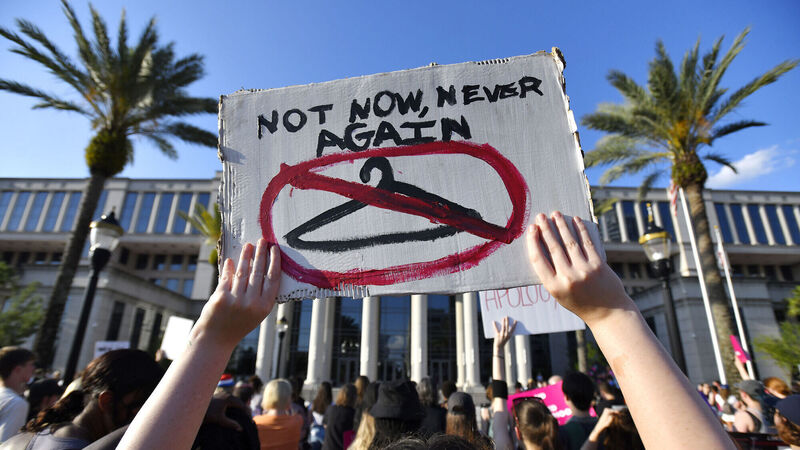US abortion ban: Throwing the baby out with the bathwater

A protester holds her sign expressing her feelings in front of the Duval County Courthouse, last week in Jacksonville, Florida. Protesters voiced their opinions after a draft opinion suggests the US Supreme Court could be poised to overturn the landmark 1973 Roe v Wade case that legalised abortion nationwide. Picture: Bob Self/The Florida Times-Union via AP
A culture war with real consequences surrounding the issue of abortion is happening in the United States and there are reasons to believe that it might spread to Europe.
Since Tuesday, May 3, the elimination of the constitutional right to abortion in the US is no longer hypothetical.













